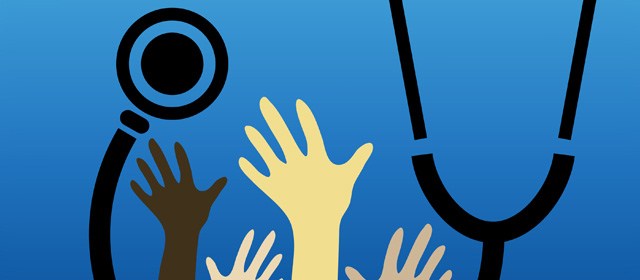|
By Tiago Palmisano
Edited By Aishwarya Raja The second-most popular topic on Facebook in 2014, according to the company’s “Year in Review”, was the Ebola epidemic. I remember hearing first-hand the loud arguments about Ebola and seeing the grim pictures of this disease flood onto television screens. I remember being constantly updated on the potential danger of an outbreak in America. Most of all, I remember feeling sorry for the victims of the illness. But the crisis has passed. The rate of new cases has been decreasing for months, and on February 11th, Obama provided the calming news that the majority of American troops deployed to combat Ebola in West Africa will be home within two months. The fact that affected countries can now begin moving on and rebuilding is certainly great news for everyone involved. A global pandemic has been avoided, so we can chalk this up as another victory for the medicine of Western society, right? Well, partially. The team of developed nations has succeeded in its efforts. But there is so much we can learn from the deadly outbreak of 2014. Scientific inquiry, a process that I have grown to love, will always seek to gain knowledge from past experiences. The most pertinent scientific question on the table now is, why was Ebola so devastating in West Africa while it could barely gain ground in more developed countries like the United States? Simply put, it’s because the disparities in global healthcare leave poor nations unable to effectively fight disease. Methods for dealing with an epidemic such as Ebola aren’t lacking. The Centers for Disease Control and Prevention (CDC) have delineated the exact process for containing a disease outbreak in almost any country. Research has already given us a strategy plan, but most impoverished countries lack the means to implement that plan without the help of foreign allies. One factor is the severe shortage of healthcare workers. The World Health Organization (WHO) recommends that for every 100,000 people, a nation should have at least 23 doctors. In the West African country of Sierra Leone, there is less than 1 doctor for every 100,000 people. And despite this glaring lack of healthcare workers, poor countries also struggle to keep the few doctors who are educated domestically. For example, one study claims that ten percent of Sierra Leone’s nurses practice in the United Kingdom. Unfortunately, the lack of money and incentives to produce and maintain healthcare workers has led to a vast inequality in the access to medicine worldwide. As a result, a woman born in Sierra Leone will live an average of 50 years less than a woman born in Japan. Instead of providing assistance once an outbreak has occurred, developed countries should invest funding into the improvement of medical schools and hospitals, which would give poorer nations the ability to independently cope with disease. Malaria, pneumonia, and HIV/AIDS remain especially prevalent in impoverished Africa, and they will continue to destroy life unless we increase the number of practicing doctors in the places where they are most needed. A country can only be as stable as its healthcare infrastructure. Furthermore, the Ebola crisis isn’t new information; it just highlights the disparity in healthcare that has existed in poor countries for years. Research conducted by the WHO reveals that Africa has a higher occurrence of disease than that of any other continent, yet it possesses only three percent of global healthcare workers. In a world where technology exists to improve human life, there is no excuse for ignoring the duty to allow this technology to reach as many people as possible. From an ethical standpoint, health and science are not commercial industries. Access to health and treatment shouldn’t be exclusive to the country with the highest GDP, but should instead be spread as impartially as possible. Health is a basic right of each individual, just as much as food and water, and providing the world with access to this right should be a priority of every wealthy nation. An equal respect for human life demands such equality. The lesson that can be learned from Ebola is that global disparities in healthcare resources resulted in deaths that could have been avoided. It is vital that the global community acts to improve the long-term stability of healthcare infrastructure worldwide. The Ebola crisis was just the tip of the iceberg – to prevent future outbreaks we must attack the problem at its source, and further our understanding of how to strengthen the medical independence of developing countries. The spread of unequal healthcare is a new epidemic, as deadly as any disease, and it’s going to require the efforts of everyone to find a cure.
0 Comments
Leave a Reply. |
Categories
All
Archives
April 2024
|

